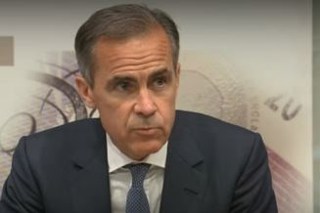The International Monetary Fund (IMF) and automotive sector analysts have expressed an inability to speculate over the economic impact of coronavirus as businesses grow increasingly “anxious over the duration” of the outbreak’s impact.
The economic cost from the outbreak of coronavirus strain COVID-19 is still uncertain but countries must work together to combat it, IMF spokesman Gerry Rice said Thursday in Washington, DC.
Rice said: “Under any scenario, the global growth in 2020 will drop below last year's level, which was 2.9%. How far will it fall? How long? What's our forecast? It's difficult to predict at this point, obviously, given the uncertainty.”
David Leggett, automotive editor at data and analytics company, GlobalData, said that “China's 80% market decline in February is a stark warning of the potential for lost sales in the global automotive market in the months ahead”.
Leggatt added: “Vehicle manufacturers and suppliers alike will be anxious over the duration of the expected coronavirus impacted market downturn and the speed of recovery later in the year.
“Even without the added impact of the Covid-19 pandemic, the global vehicle market was heading for a decline of around 2% this year with the US, China and European markets flat or slightly declining.
“The demand outlook has now deteriorated further.”
The impact of the coronavirus outbreak on the automotive retail sector’s PLCs has been marked.
In the seven days after the first UK death from the virus, on March 5: Pendragon’s share price declined 32.5% to 8p; Vertu Motors by 24% to 24p; Marshall by 15.3% to 130p; Lookers by 43.8% to 22.45p; Inchcape by 11.5% to 517.5p; Cambria by 13.3% to 55.5p; and Caffyns by 16.3% to 335p.
Rice, speaking a an IMF conference delivered to an empty conference after journalists were urged to stay away due to the coronavirus risk, urged businesses and governments to remain aware of the context of the crisis they now face.
“First and foremost, this is a health issue,” he said. “We've been saying we've been asking for governments to be forward leaning. That means to take this issue very seriously, to be active, to take well-targeted and proportionate measures again, to strengthen public health systems.
“First and foremost, and to contain the impact on the economy. So it's targeted financing to support health care systems to immediately help the people that are affected and secondary. Secondly, monetary and fiscal support to help the economy where it's needed most.”
In this week’s 2020 Budget the Government’s new Chancellor, Rishi Sunak, outlined an investment of £12 billion to help manage the effects of coronavirus on UK households and businesses.
Sunak said that individuals would gain statutory sick pay after just four days and be able to self-isolate even if they did not exhibit symptoms of the virus by gaining a sick note, without having seen a doctor, by dialling the NHS’s ‘111’ telephone service.
He admitted that the measures, and the wider impact of the coronavirus, could mean that up to 20% of people could be off work at any one time, but insisted that while coronavirus’ effects will “have a significant effect on the UK economy, it will be temporary”.
And, acknowledging part of the impact of workforce shortages on businesses such as car retailers. Sunak said that the cost of having someone off work for up to 14 days would be refunded by Government.
A total of £2bn will be allocated to cover firms that lose out because staff are off sick, he said, although this will only apply to firms that employ fewer than 250 staff.
The Budget's measures to tackle the effects of coronavirus, which also included a pledge to help the NHS by providing "whatever it needs", came hours after The Bank of England announced that it would cut interest rates from 0.75% back to a record low of 0.25%.
Carney said that the move would hopefully free up billions of pounds of extra lending power to help banks support UK businesses.


















Login to comment
Comments
No comments have been made yet.